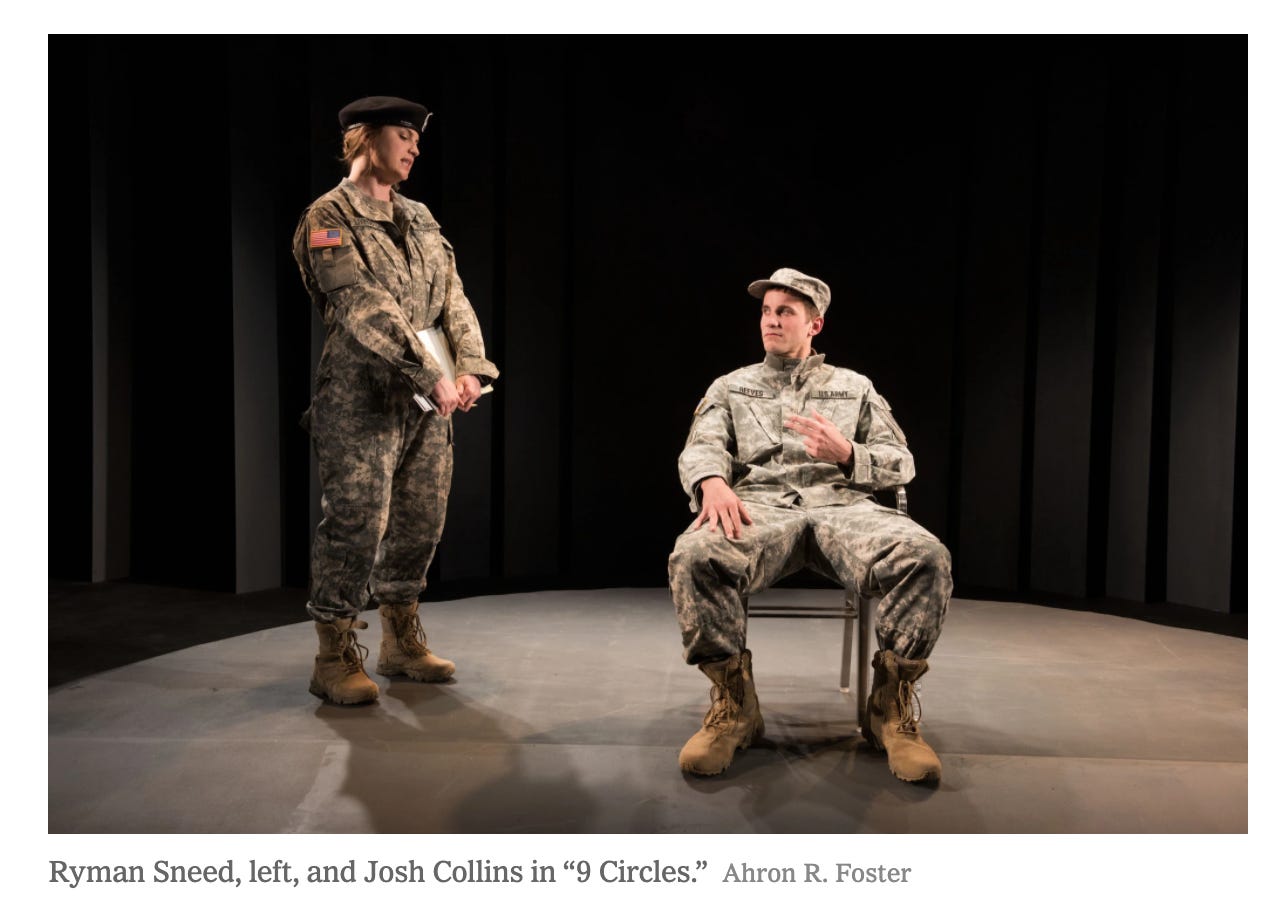Play: 9 Circles by Bill Cain
Suraj's Arts Log: seeing war through the eyes of a very-messed-up soldier
I just got back into an acting class recently. In that class, my teacher assigns us a scene; then, we work on it for months. It’s a genuine privilege to work on a single work for an extended period. Each week, my scene partner and I are able to explore a new layer of our characters and the scene overall. That exploration and discovery process is where all of the personal growth happens.
My current scene is from a play called “9 Circles” by Bill Cain. It tells the story of an army private who is put on trial for committing war crimes in Iraq. The title, “9 Circles,” references Dante’s “The Divine Comedy,” and we see this soldier’s descent further and further into hell/prison as the play progresses. Cain loosely based the plot on the horrific torture of Iraqi prisoners at Abu Ghraib.
In class, I play that private — “Pvt. Reeves.” I don’t want to spoil too much of the play, but I don’t think it’s a spoiler to say that “he did it.” He most certainly committed heinous crimes against Iraqi civilians. And, yet, the play carefully shows how many others, in addition to Reeves, are culpable as well. Politicians deflect and say that Reeves is “a bad apple,” afraid that if Americans hear about the brutalization of Iraqi citizens, they might stop supporting the “just” war. Lawyers and therapists do their jobs in the military justice system without reckoning with the deep horrors of war that soldiers face, day in and day out. The American public is clueless, indifferent even, to suffering in another part of the world.
Throughout the play, Reeves is the only person to accept responsibility. He knows he did what he did, and he doesn’t shy away from it. He is not an entirely sympathetic character, to be sure — he still killed innocent people. However, the play makes it very clear that everyone around Reeves, including the audience watching the play, is an accomplice to the crime.




